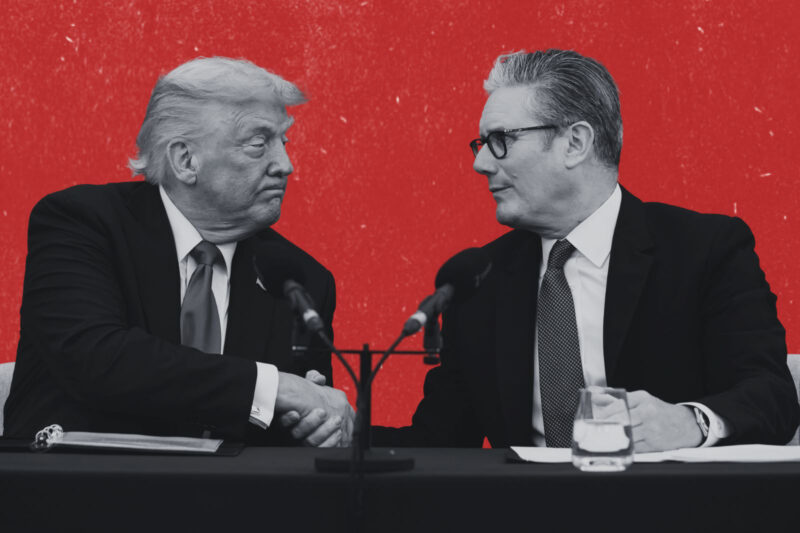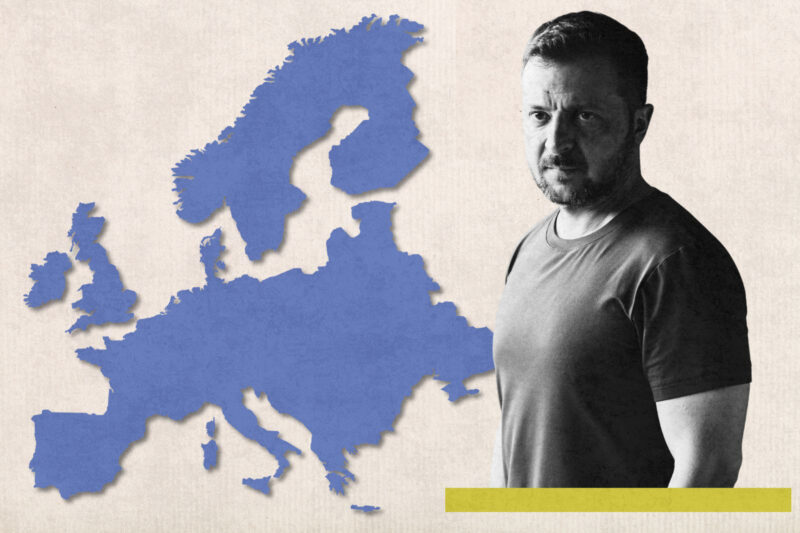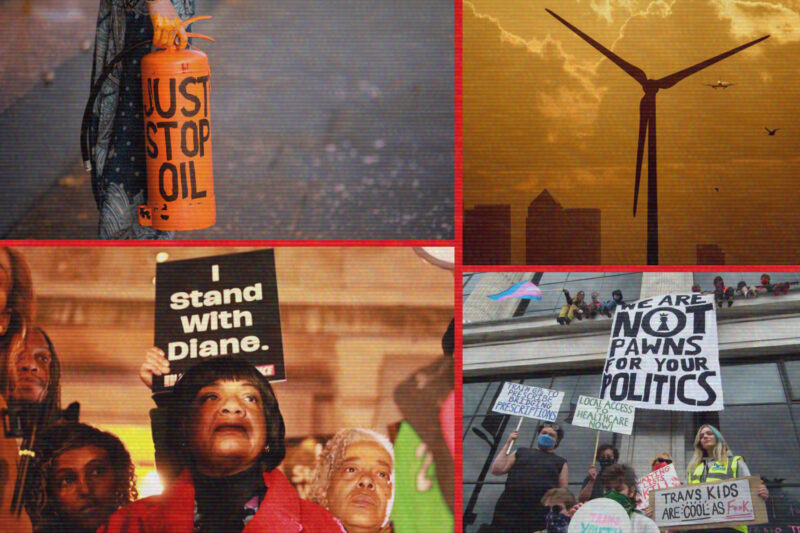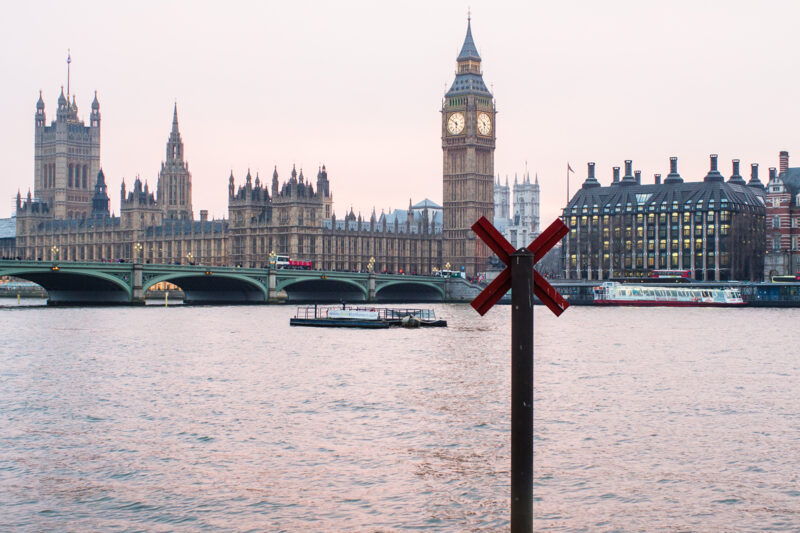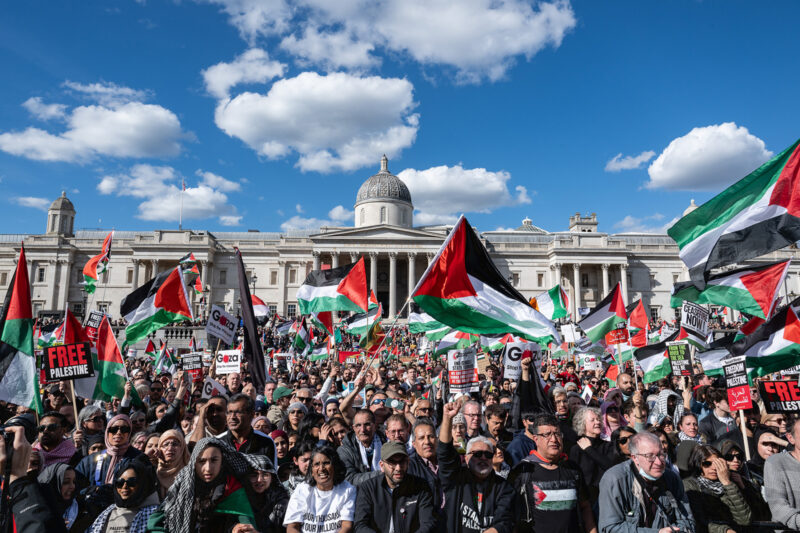Rain and riots: Behind the scenes of my year covering British politics
ITV News political correspondent Shehab Khan reflects on a momentous year for both sides of the Atlantic — and lifts the curtain on 2025
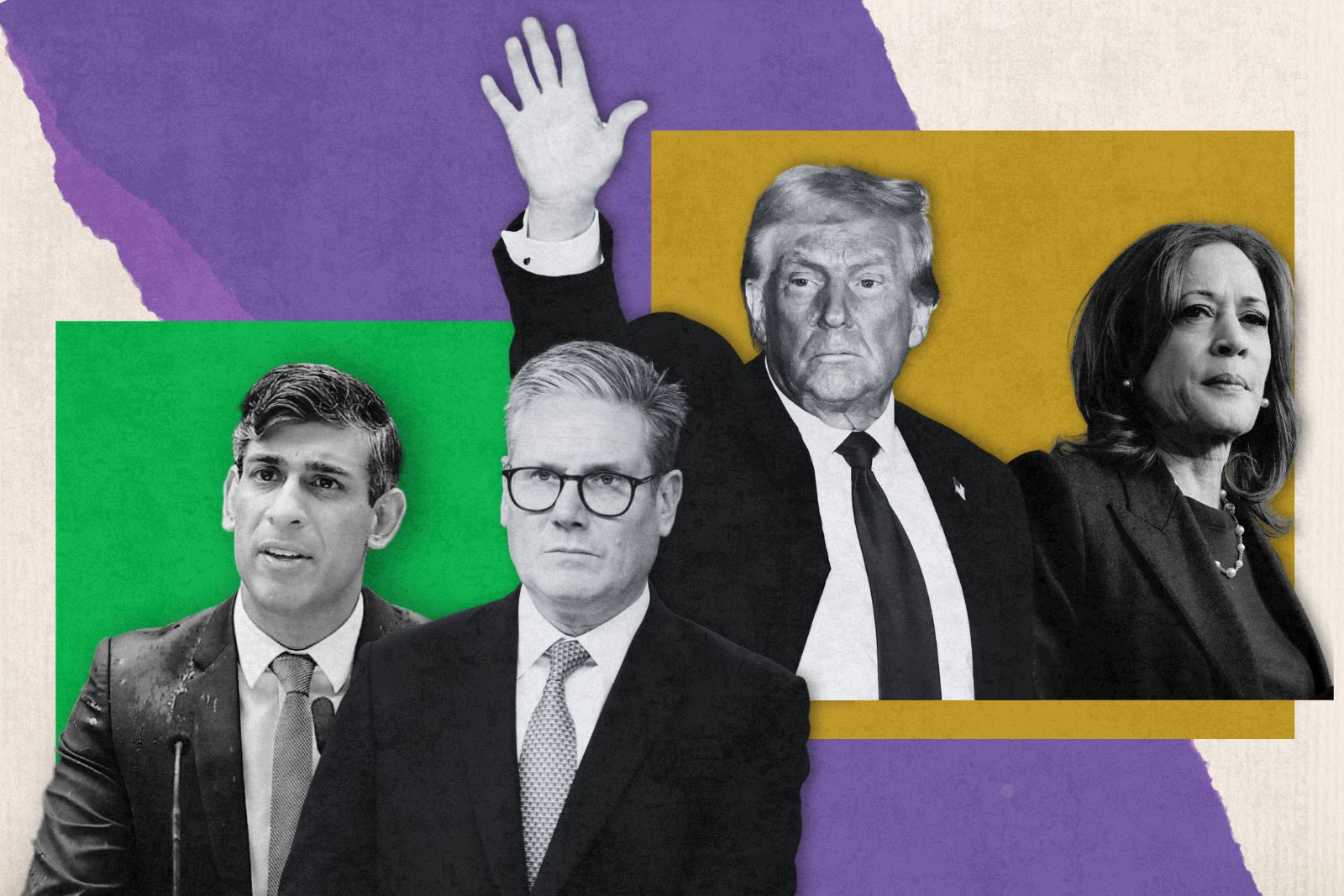
I was at home enjoying a day off when I started hearing rumours that Rishi Sunak might be about to call an election.
Honestly, I didn’t think it was likely. The Tories were still way behind in the polls, and most people were expecting the election to happen in October or November.
Like everyone else that day, I ended up glued to the TV, watching Sunak on the steps of Downing Street getting absolutely soaked in the rain. And, like everyone else, I couldn’t stop wondering: why didn’t he have an umbrella? Didn’t anyone check the weather? Or, better yet, why didn’t he just make the announcement indoors?
Before I knew it, my day off was over — I was called in to work and rushed to the ExCeL conference centre in east London, where the Tories were officially launching their campaign. It was clear some party activists and politicians were just as surprised as I was. With the Conservatives yet to choose candidates for every constituency, a few would-be MPs admitted they still hadn’t finished their applications.
For my own part, I’d been planning a holiday and looking forward to a relaxing summer. Now, instead of sunshine and a break, I was staring down two hectic months of traveling around the country, fully immersed in the Sunak campaign.
It didn’t take long for Sunak’s gamble on an early election to backfire spectacularly. I had a front-row seat, traveling the length and breadth of the country with Sunak’s campaign, and there was not much to sing about.
Sunak made headlines for missing D-day celebrations, for being photobombed by Liberal Democrats in a boat and for claiming he had to endure the hardship of life without Sky TV growing up — a statement that did not exactly endear him to struggling families.
I spent the campaign on the rather plush Tory battle bus. It was quite the setup — two ovens, a microwave, a fridge stocked with snacks, and even a sofa area at the back. We spent hours on the road, often with early morning starts and late finishes, frequently starting in London and ending the day in the prime minister’s Yorkshire constituency. Fuelled by Pret sandwiches, packets of crisps and a lot of biscuits, it was a gruelling affair — though Sunak did admit to those of us on the bus that during those long journeys he liked to unwind by playing games on his phone. Connections, Wordle and Sudoku were his go-tos. Relatable, if nothing else.
But the campaign itself? Lacklustre. And the result was catastrophic for the Tories.
Election day is always a bit of a whirlwind. Though I wasn’t due to work overnight, I had the responsibility of being up and ready by 6am the next day to cover the fallout, and of course I stayed up instead of going to bed early, glued to the coverage for most of the night as seat after seat turned red and the Tories’ disastrous result became painfully obvious.
By morning, I was stumbling around Westminster, fuelled by a strong coffee, trying to get reactions from Conservatives. It was a challenge, to say the least. Labour, of course, was riding high, with party figures keen to get in front of any camera they could find. But finding a Tory willing to talk was tough.
I even texted a Tory MP I know fairly well. He had lost his seat, and when I asked if he’d be willing to come on TV and chat about what had happened, his response was … well, let’s just say it’s not something I can repeat here. Safe to say, he wasn’t in the mood.
And so Keir Starmer stormed into Number 10 with a massive majority. But his first few months in office were tough. September saw a freebies scandal that wouldn’t go away; the following month, his chief of staff stepped down. Before all that, though, barely weeks after Labour’s election win, far-right violence erupted across Britain.
Covering the riots was one of the hardest jobs I’ve done as a journalist. The threat level felt high, not just as a reporter but also as a British Muslim. Unfortunately, as often happens with stories like this, the abuse and threats online started pouring in on my social media accounts. It got bad enough that ITV News arranged travel for me to and from the office, just to make sure I was safe.
When the prime minister held an emergency press conference at Downing Street, I felt a real responsibility to speak up. As the only British Muslim journalist in the room asking questions, I had to ask what he planned to do to reassure British Muslims after mosques had been attacked. Starmer’s response was firm. The exchange went viral, getting more than three million views on my social media platforms alone.
After that, I spent time travelling across the country, speaking to communities that had been directly affected. Hearing their stories and how they felt about everything brought home just how deeply these events had shaken people.
Next year in politics
Starmer’s approval ratings show that he is more unpopular following five months in office than any other prime minister in the last 40 years, and so 2025 has to be showtime for Labour. The grace period that is afforded to new leaders will be decisively over – despite the polls, people still tell us in focus groups that Starmer should be given time to deliver – and the pressure will be on. Living standards are one of the prime minister’s top priorities for next year, but he has left himself little room to manoeuvre economically and is therefore relying on the economy to start growing decisively. Cuts to interest rates may help, but these hinge on the Bank of England and nothing is a given in this fragile UK economy.
Meanwhile, across the Atlantic, Trump’s return to the White House has already sent shockwaves around the globe. He has vowed to broker peace in Ukraine by talking to both the Russian and Ukrainian presidents, Vladimir Putin and Volodymyr Zelenskyy. Critics argue this could force dangerous compromises for Ukraine while giving Russia territory, but supporters hail it as a bold move to end the bloodshed. Either way, it could put him at odds with Starmer and much of Europe, whose leaders have repeatedly spoken of their support for Ukraine.
I was at the European Political Community summit in Budapest in the days after Trump’s victory, and Europe was clearly talking of little else. I spoke to four world leaders, all of whom — while remaining diplomatic — clearly knew the dynamics in Europe were about to shift. Trump has been outspoken about the need for the continent to take responsibility for its own defence. At the event, the head of Nato said Trump was right.
Then there’s the Middle East. Trump’s unwavering support for Israel is a known quantity, and his relocation of the US embassy to Jerusalem during his first term demonstrates where he stands on the issue politically. He has accused Kamala Harris of being “weak” on Middle Eastern issues — though, of course, the Democrats have also been criticised for their own support of Israel despite international dismay at the destruction of Gaza — and his stance is likely to ripple through the region. Trump takes office on 20 January and has warned that “all hell is going to break out” if the remaining Israeli hostages are not released by then. Trump has not been explicit about what this means, but the warnings are clearly ominous.
And let’s not forget China. Trump as ever seems primed for a trade war that will almost certainly resurface if he introduces tariffs on Chinese imports, particularly electronics. There will be repercussions for global markets if he chooses to do so. An increase in tariffs on Chinese goods would raise costs for us all. Trump will be hoping it means people turn to US goods instead, or that manufacturers move production to the US, but neither of these is guaranteed and the entire thing could end up costing everyone a lot more instead. As the old saying goes, when America sneezes, the world catches a cold — given how fragile the global economy is at the moment, this cold could be hugely consequential.
So, as we eventually pack away the tinsel and step into 2025, turning our back on a very busy 2024, one thing is for sure: the world of politics is not about to calm down any time soon.
Shehab Khan is an award-winning presenter and political correspondent for ITV News.
 Newsletter
Newsletter


